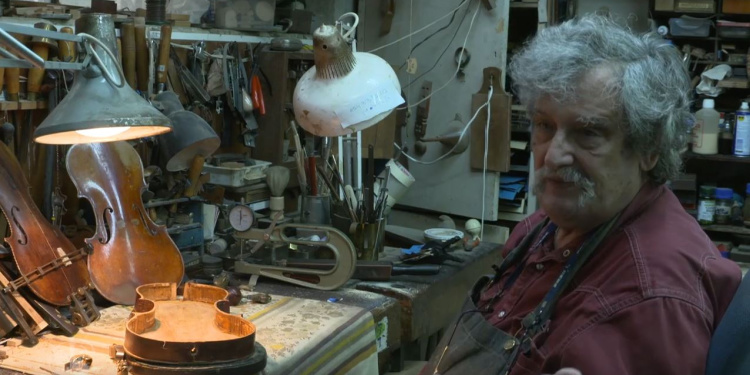Violins of Hope
The Fellowship | October 28, 2020

Born in 1939 in British-mandate Palestine before World War II, Israeli violin maker Amnon Weinstein nonetheless has a strong connection to the Holocaust.
Violins – A Family Business
Moshe Weinstein, a Jewish violinist and luthier in Poland, made aliyah (immigrated) to the Holy Land the year before his son Amnon’s birth. There, Moshe started a violin business, including working for the newly founded Palestine Symphony Orchestra (which became known as the Israel Philharmonic Orchestra).
Violins of the Holocaust
But while the Weinsteins found safety in the Promised Land, the Jews of Europe – many of them relatives of the family – did not. Many violinists in the Holy Land, upon learning of the ongoing Holocaust, wanted to destroy their German violins in protest of the Nazis’ treatment. Moshe Weinstein instead began to collect these instruments. Then Moshe learned after the war that his entire family perished at the hands of the Nazis. Moshe suffered a heart attack and never spoke of his family again.
For many years, Moshe’s son Amnon Weinstein carried on the family business of violin-making. Then one day in the 1980s, a young man brought in a violin that had belonged to his grandfather, a survivor of the Auschwitz-Birkenau concentration camp. When the luthier opened the violin to repair it, he found the body full of ash – ash, he realized in horror, from the Auschwitz crematoria.
Violins of Hope
This encounter inspired Amnon Weinstein to begin collecting violins, as his father had. But the son’s collection features violins from the Holocaust.
This collection, Violins of Hope, uses violins that survived the Holocaust – and the beautiful music they make – to educate the world about this dark chapter in the Jewish people’s history. The instruments travel the world, making music and teaching young people and older people alike about the Holocaust. And while these violins provide hope, they also remind the world to never forget.
